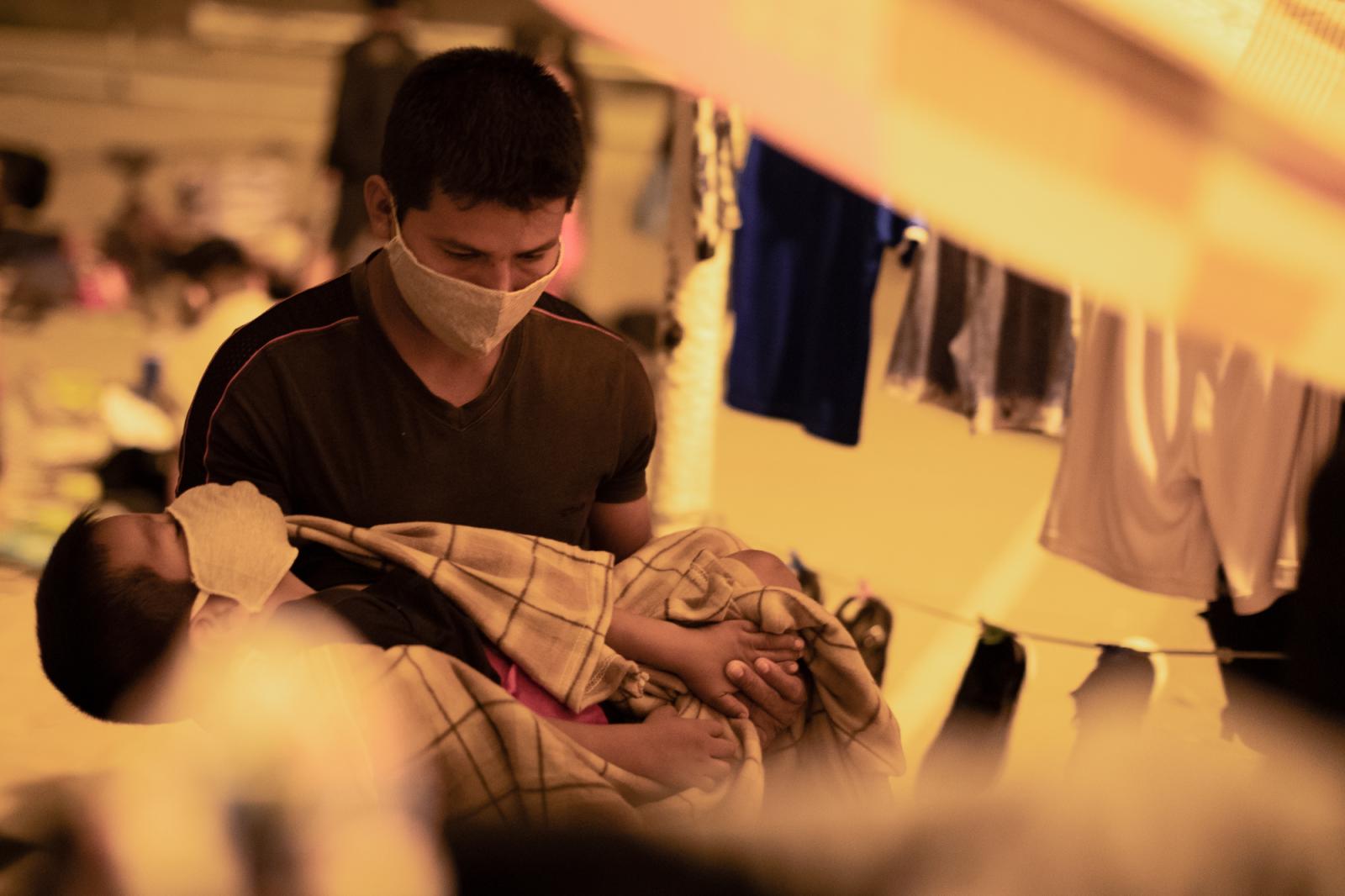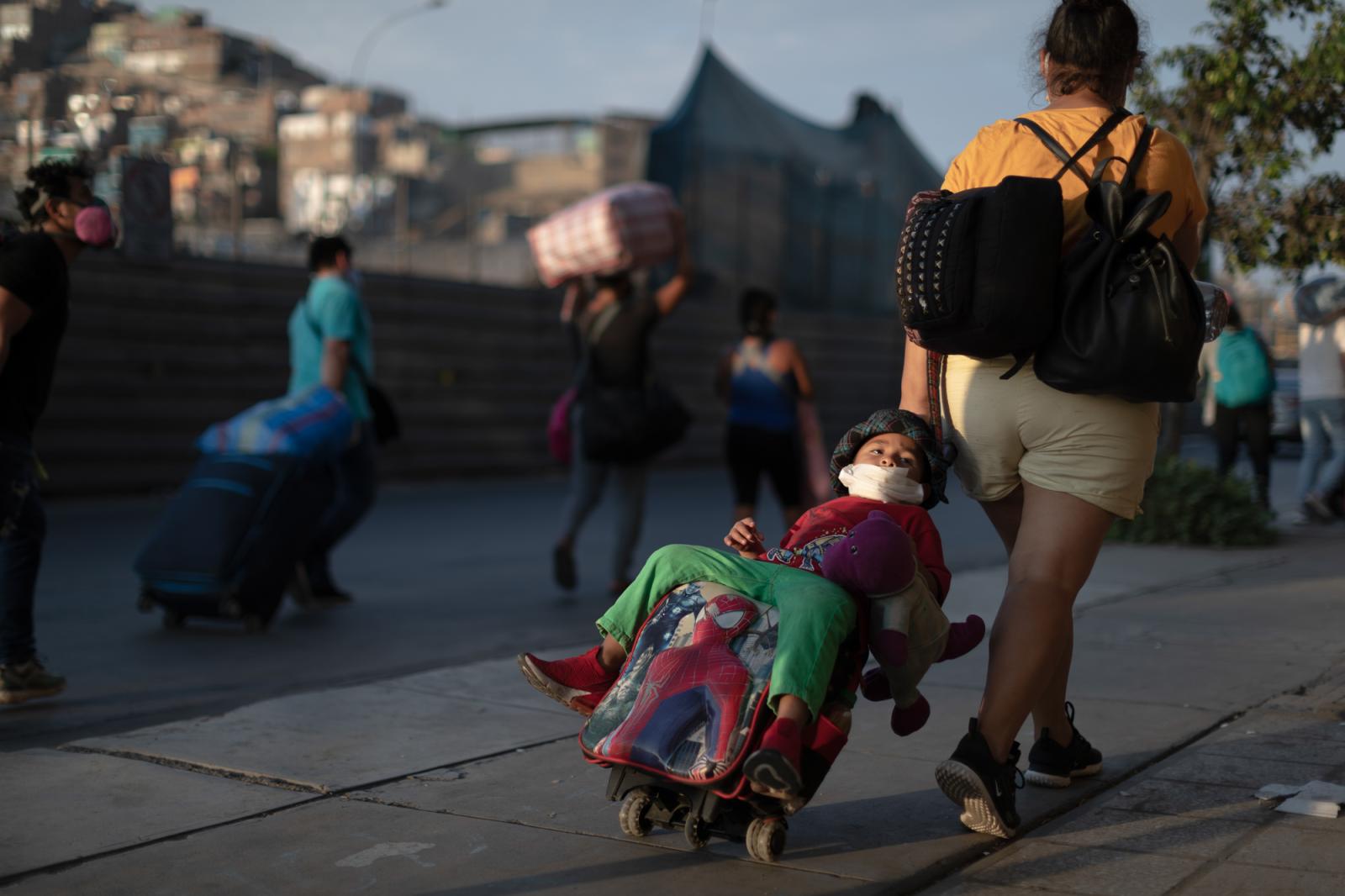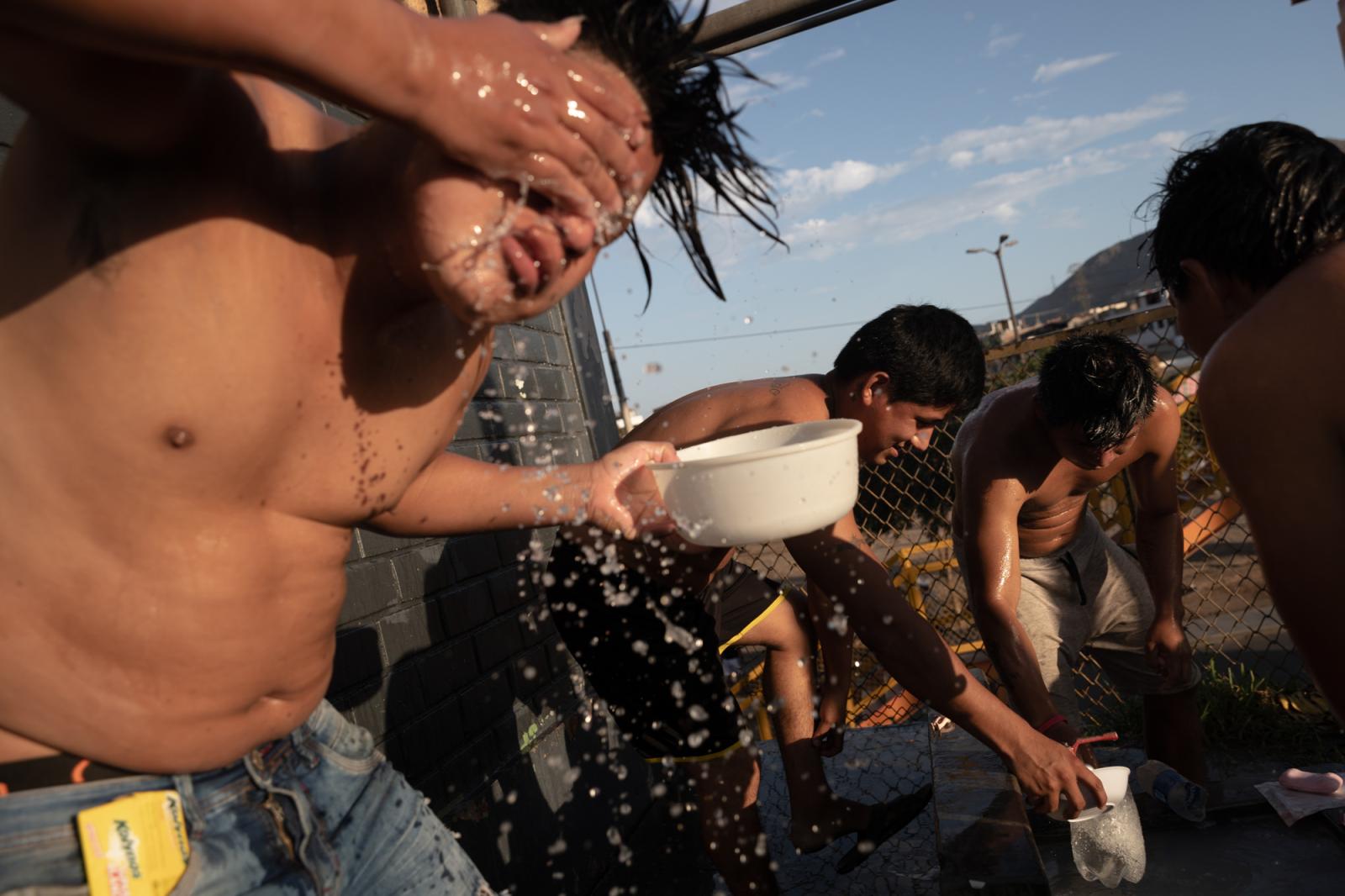Public Project
Desplazados
Aproximadamente 400 compatriotas -entre adultos, ancianos y discapacitados- intentaron llegar a sus hogares en la selva peruana escapando del COVID-19. Por varios días durmieron en la autopista Ramiro Prialé teniendo como única consuelo pernoctar en comunidad. La unión fue la única alternativa para ser escuchados.
Caminar con niños obligó a los desplazados a hacer paradas para descansar y de paso cargar baterías, hidratarse y hasta hacer una olla común con donaciones de la gente con la que se cruzan en el camino hacia la región San Martín.
Sin duda alguna el gobierno no supo cómo afrontar esta problemática desde cada lado por donde la pandemia atacó, es evidente que tomó por sorpresa al Perú como al mundo en general. Pero la reacción y el planteamiento de soluciones demoraba tanto que los ciudadanos decidieron emprender la marcha al pasar el tiempo, agotarse los recursos y verse cara a cara con la incertidumbre de lo que sucedería más adelante.
(English)
On the 35th day of quarantine and state of sanitary emergency, hundreds of Peruvians who came to Lima from the San Martin region for work, health and other reasons had to leave their homes or rented rooms because they could no longer afford to pay the monthly rent. They organized themselves to move forward in a caravan and return to their places of birth. The desperation of not receiving help from the government forced them to expose themselves and their children and elderly relatives to contagion.
Approximately 400 compatriots - including adults, the elderly and the disabled - tried to reach their homes in the Peruvian jungle escaping from COVID-19. For several days they slept on the Ramiro Prialé highway, the only consolation being to spend the night in community. Unity was the only alternative to be heard.
Walking with children forced the displaced to make stops to rest and charge their batteries, hydrate themselves and even make a common pot with donations from the people they met on the way to the San Martin region.
Undoubtedly, the government did not know how to face this problem from every side where the pandemic attacked, it is evident that it took Peru and the world in general by surprise. But the reaction and the proposal of solutions took so long that the citizens decided to take action as time went by, resources were exhausted and they found themselves face to face with the uncertainty of what would happen later on.
On the 35th day of quarantine and state of sanitary emergency, hundreds of Peruvians who came to Lima from the San Martin region for work, health and other reasons had to leave their homes or rented rooms because they could no longer afford to pay the monthly rent. They organized themselves to move forward in a caravan and return to their places of birth. The desperation of not receiving help from the government forced them to expose themselves and their children and elderly relatives to contagion.
Approximately 400 compatriots - including adults, the elderly and the disabled - tried to reach their homes in the Peruvian jungle escaping from COVID-19. For several days they slept on the Ramiro Prialé highway, the only consolation being to spend the night in community. Unity was the only alternative to be heard.
Walking with children forced the displaced to make stops to rest and charge their batteries, hydrate themselves and even make a common pot with donations from the people they met on the way to the San Martin region.
Undoubtedly, the government did not know how to face this problem from every side where the pandemic attacked, it is evident that it took Peru and the world in general by surprise. But the reaction and the proposal of solutions took so long that the citizens decided to take action as time went by, resources were exhausted and they found themselves face to face with the uncertainty of what would happen later on.
1,466












